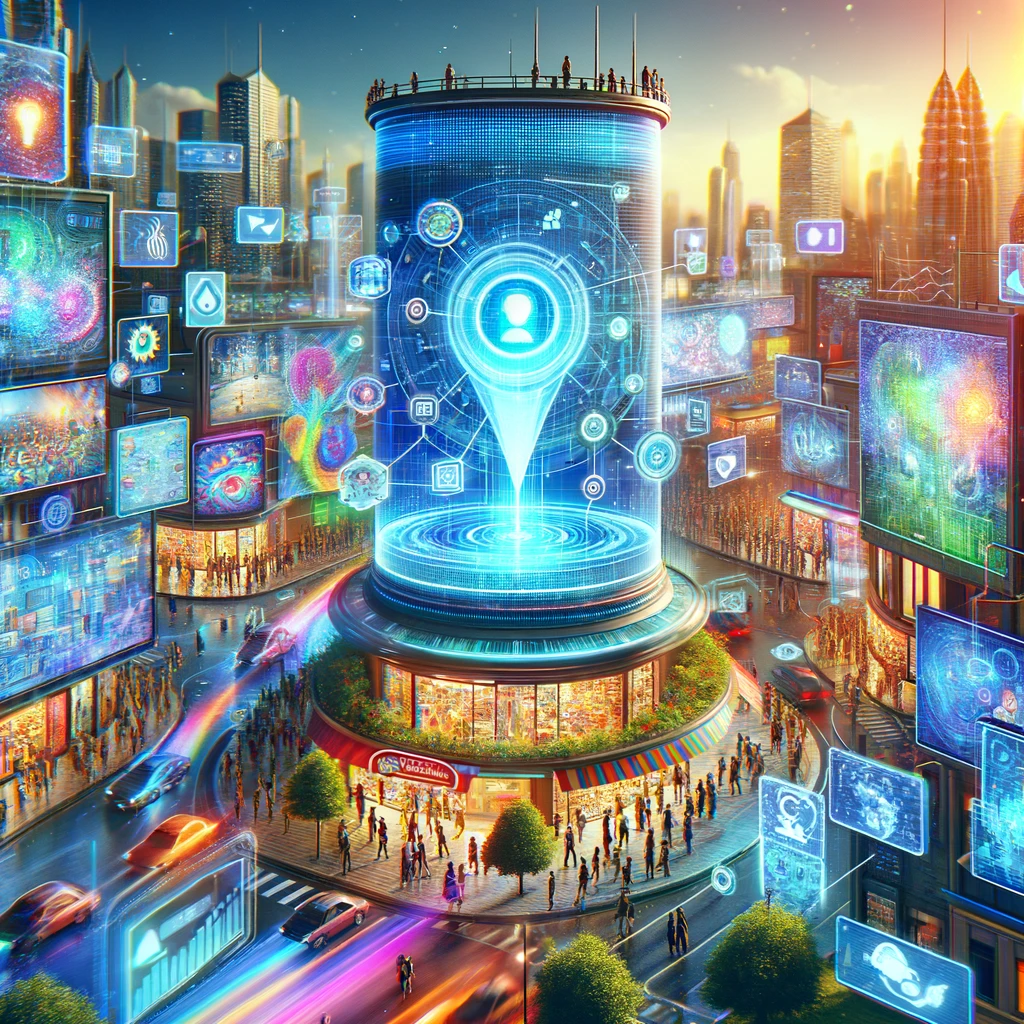The Future of Marketing with AI
Application development

 181
181 
Artificial Intelligence and the Future of the Marketing World
In today’s rapidly evolving digital world, artificial intelligence (AI) has become a central driving force in shaping the future of marketing. Revolutionary AI technologies enable marketers to tackle complex challenges, gain deeper insights, and deliver personalized customer experiences on an unprecedented scale.
One of the most significant applications of AI in marketing is advanced personalization. By analyzing vast amounts of customer data in real-time, machine learning algorithms can accurately predict the preferences and needs of every customer. AI-based recommendation systems, such as those used by Amazon or Netflix, dynamically adapt to user behaviors and contexts, offering relevant content, products, or services in real-time.
Artificial intelligence is also changing how brands communicate with customers. AI-driven chatbots and virtual agents provide 24/7 support and quick responses to customer inquiries, enhancing customer satisfaction and loyalty. Platforms like Intercom and Drift utilize AI to manage personalized conversations, offer tailored product recommendations, and identify cross-sell and upsell opportunities.
Another area undergoing a revolution thanks to AI is campaign optimization. Smart advertising tools, such as those offered by Google or Facebook, use machine learning algorithms to optimize resource allocation, target ads more accurately, and maximize return on investment. By analyzing conversion and engagement patterns in real time, these systems can make automatic adjustments to campaigns and continuously improve performance.
However, the adoption of AI technologies in marketing also brings challenges and ethical considerations. Issues related to data privacy and transparency are becoming more critical than ever as algorithms utilize personal information. Furthermore, there is concern over potential biases in automated decision-making. Marketers must balance the benefits of personalization against the need to maintain customer trust and data security.
The Challenges of the Marketing World:
- Irrelevant Advertising: Customers are inundated with ads that do not relate to their needs and desires, leading to disengagement and lack of interest.
- Creating Quality Content: Producing engaging and interesting content requires time, resources, and expertise.
- Understanding Customer Needs: It is challenging to know definitively what the needs and preferences of the target audience are, complicating the development of an effective marketing strategy.
The Solution: Groundbreaking Artificial Intelligence (AI):
1. Personalized Targeted Advertising:
- AI applications analyze user behavior and display relevant and personalized advertisements.
- Example: Amazon uses AI to present its customers with product recommendations based on their purchase and browsing history.
2. Customized Content Creation:
- AI applications can write articles, social media posts, and other marketing content, tailored to the target audience and marketing objectives.
- Example: Persado uses AI to create more effective marketing texts that lead to increased conversion rates.
3. Deep Insights into Customers:
- AI app development that analyzes data from various sources, like social media and opinion polls, providing deep insights into customer behavior, preferences, and needs.
- Example: Salesforce uses AI to help its clients better understand their customers’ needs and improve customer service.
Benefits of Using AI for Marketing:
- Efficiency: Time and resource savings.
- Accuracy: Increased conversion rates and return on investment (ROI).
- Relevance: Creating a better customer experience.
- Insights: Making data-driven marketing decisions.
Examples:
1. Personalized Targeted Advertising:
- AI applications analyze user behavior and display relevant and personalized advertisements.
- Example: Amazon uses AI to present its customers with product recommendations based on their purchase and browsing history. A study by Forrester Research from 2023 found that 77% of consumers prefer to receive ads relevant to their interests.
- Additional Example: Netflix uses AI to suggest series and movies to its customers based on their viewing habits.
2. Customized Content Creation:
- AI applications can write articles, social media posts, and other marketing content, tailored to the target audience and marketing objectives.
- Example: Persado uses AI to create more effective marketing texts that lead to increased conversion rates. A study by McKinsey & Company from 2020 found that using AI for content creation can increase conversion rates by 50%.
- Additional Example: BuzzSumo uses AI to help marketers identify trending topics and create content that receives a lot of shares on social media.
3. Deep Insights into Customers:
- AI applications analyze data from various sources, like social networks and opinion polls, providing deep insights into customer behavior, preferences, and needs.
- Example: Salesforce uses AI to help its clients better understand their customers’ needs and improve customer service. A study by Gartner from 2022 found that 82% of managers in B2B companies believe AI helps them better understand their customers' needs.
- Additional Example: Adobe uses AI to analyze customer sentiments towards the brand expressed on social media and in satisfaction surveys.
In conclusion:
AI technologies are fundamentally transforming the marketing world, enabling the creation of smarter, more precise, and more efficient marketing strategies. As a result, we are witnessing an increase in customer satisfaction, improved business outcomes, and brand strengthening.


